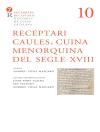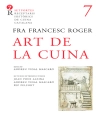In ‘The Physiology of Taste; Or, Transcendental Gastronomy, ‘ Brillat-Savarin engages readers in a rich exploration of gastronomic philosophy, intertwining essays on culinary experiences with profound insights into human nature and culture. The work is characterized by its eloquent prose and meticulous attention to the sensory dimensions of eating, reflecting the Enlightenment’s fascination with the senses as a pathway to knowledge. Brillat-Savarin’s discourse transcends mere cooking, positioning food as an essential element of societal identity, morality, and enjoyment, thus carving a unique niche in the realm of culinary literature. Jean Anthelme Brillat-Savarin (1755–1826) was a French lawyer and politician whose passion for gastronomy was ignited by a fusion of intellectual curiosity and a distinguished palate. His experiences as a connoisseur and his travels across Europe provided him with extensive insights into various culinary practices. Drawing on the principles of natural philosophy, Brillat-Savarin crafted this seminal work during a period when culinary arts were becoming a matter of scholarly inquiry, culminating in a text that is as informative as it is indulgent. For those who appreciate the finer nuances of food and its cultural significance, this book is an essential read. It invites readers to reflect on the deeper connections between gastronomy and human experience, making it a compelling addition to both culinary collections and philosophical discourse.
Giới thiệu về tác giả
Jean Anthelme Brillat-Savarin (1755–1826) was a French lawyer and politician who gained posthumous fame as a gastronome with his delightful treatise on food, ‘The Physiology of Taste; Or, Transcendental Gastronomy’ (1825). This book, considered a timeless culinary classic, is a reflective work on the pleasures of the table. An intellectual figure of the Enlightenment and ahead of his time, Brillat-Savarin touches on topics such as dietetics, cooking methods, gastronomic pleasures, and the psychology of eating. While ‘The Physiology of Taste’ is his most renowned work, it is his literary and philosophical approach to gastronomy that has cemented his legacy. He delves into food with wit and elegance, incorporating aphorisms such as ‘Tell me what you eat, and I shall tell you what you are, ‘ underpinning his belief in the connection between food and identity. Brillat-Savarin’s style is unique for his abilities to combine scientific aspects with anecdotal and personal experiences, bridging the gap between the art of fine living and empirical science. His work predates the modern food writing genre and influences countless food lovers and writers. Brillat-Savarin’s contributions go beyond mere culinary arts; they offer a perspective on the social and cultural dimensions of eating.












